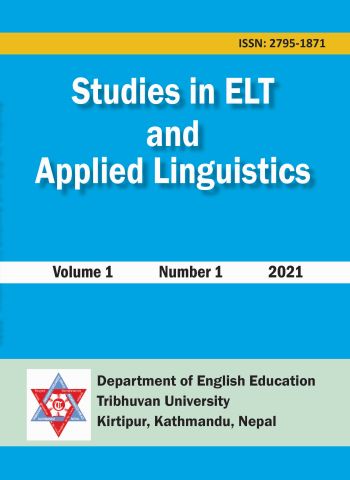Language and Style of Sunetra Gupta’s Fictional Narratives
DOI:
https://doi.org/10.3126/seltal.v1i1.40606Keywords:
stream of conciousness, haunting memories, second-person narration, literary language, intertextualityAbstract
My aim in this paper is to offer a critical discussion on certain linguistic and stylistic aspects in the fictional pieces by Sunetra Gupta, an important Bengali diaspora author based in Oxford. In her debut novel, ‘Memories of Rain’ as well as in her others, Gupta effortlessly intersperses prose with poetry; her writing is complex, fusing stream of sensuous poetic imagery with stream of consciousness. A powerful delivery of interior monologue, figurative language, and continuous time-shifts invites the novelist’s comparison with Virginia Woolf. Memory becomes a vital player in many of her novels, be it Memories of Rain, Moonlight into Marzipan or So Good in Black. Giving it the centre stage automatically leads her towards an experimental narrative technique, since memory – a highly subjective and elastic category blending fantasy with the past – keeps intervening in the linear flow of the plot. Interestingly, her stream-of-consciousness technique transforms language and punctuation marks from normative linguistic symbols into poignant emotional tools. By exploring the limits of ambiguity in language, as I argue here, Gupta has evolved a personal literary idiom in which prose is pushed into a territory formerly accessible only to poetry. The issue of intertextuality is also discussed, with special reference to Memories of Rain where the influence and interplay of diverse texts provide the novelists context and meaning, and shape its narrative and characters.




